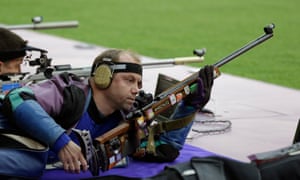The image of an Olympian is associated with physical prowess, a sculpted body chipped into perfection by years of careful maintenance and preparation. We expect these people to perform great feats of physicality better than the rest of us. That is why so many are scornful of the notion that competitive video gaming, or eSports as it’s come to be known, should stand alongside other Olympic sports. But this requires rethinking.
eSports are being talked up as a potential medal event in the Paris summer games of 2024, but there are plenty of barriers in the way, with International Olympic Committee (IOC) president Thomas Bach saying that eSports are contrary to “Olympic rules and values of sport” (for now).
The nascent field currently enjoys enormous attention and funding, even without IOC recognition. Last year, CNN noted that the global audience for eSports grew to 292 million, with some projecting this to almost double by 2019. Global revenue for the eSports industry is currently estimated at $463m (£357m) and rising. In many countries, audiences pack stadiums and concert venues to watch teams compete against each other in a range of video game tournaments. People from around the world also watch from the comfort of their homes thanks to streaming: Yahoo has an entire YouTube channel dedicated to the sport. In 2014 Amazon paid $970m (£585m) to acquire Twitch, a site that streams live footage of people playing video games.
Some maintain that the Olympics should keep its focus on traditional notions of physicality. But a casual glance through history shows the IOC awarded medals for town planning, drawing, poetry and much more. They still award them for dressage. As Mary Beard notes, the Olympic Games has a long, strange history, with its standards rarely set in stone.
How do we even compare various current Olympic sports using a broad understanding of physical excellence, when we have the 400m dash and prone rifle shooting in the same Games? What is demanded by one is not demanded by another, so there is no objective measure. Regardless, some point to studies arguing that eSports athletes are athletes in the traditional sense of the term too.
Of course, sports remain sports whether or not the IOC recognises them. Cricket, after all, is not included in the Olympics and neither is squash. They still draw in crowds and the best players, especially in cricket, are household names. (Can you name a famous dressage rider? Or horse? I didn’t think so.)

And yet, that elusive recognition remains important. As Irwin Kishner, an expert on sports law at Herrick, told Forbes: “Many sports want to get Olympic recognition because it is a way for public demonstration to the world, and a surge of interest often follows.”
While eSports is growing, that still doesn’t necessarily make it widely accepted. Cricket has a long history and tradition that doesn’t need Olympic recognition. eSports is young, its players are young and its audience is young. The dismissal of eSports aligns with the constant dismissal of what occupies young people as “fads” or unimportant activities older people scoff at.
eSports is an opportunity for young people to take an existing passion, competitive gaming, and make something more of it, even earning a living from it – after all, this is often given as a reason to celebrate and support sports in general.
Finally, as Quartz notes: “The guidelines for [IOC eligibility for] 2020 … focus primarily on appealing to young audiences and maximising the Games’ general popularity.” So Thomas Bach’s dismissal doesn’t even align with the IOC’s purported interests. Furthermore, eSports will be a recognised as an official sport at the Asian Games in China in 2022.
While eSports grows on the world stage, arguments against including it as an official sport, worthy of an Olympic medal, seem wanting.
• Tauriq Moosa is an ethics, technology and pop culture blogger



